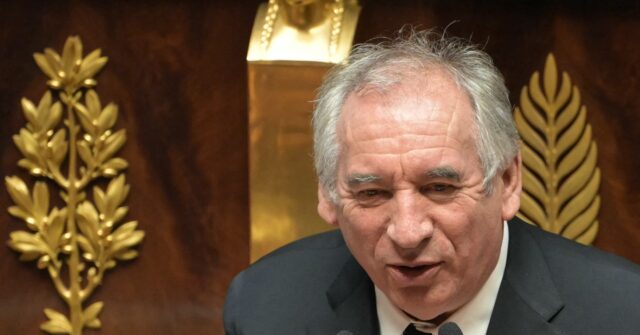French Prime Minister François Bayrou deployed a controversial ‘nuclear option’ constitutional loophole to pass through a deeply contested national budget without a vote in the National Assembly on Monday.
Prime Minister Bayrou appeared to have cleared the first significant hurdle his government had faced since coming into power in December and seemingly avoided his predecessor’s fate by driving a wedge between far-left parties.
While the attempted use of Article 49.3 — which allows the government to pass legislation without a vote in the parliament — had caused the censure and ousting of the short-lived administration of Michel Barnier last year, Bayrou was able to secure a guarantee from the Socialist Party that they would not back a no-confidence vote tabled by the far-left France Unbowed (LFI) party of radical Jean-Luc Mélenchon.
The Socialists said that although they managed to secure concessions on health care and pensioners, they still opposed Bayrou’s government and his budget. But the party said that it was necessary for France to have a budget, given the fiscal crisis facing the country, which faces potential credit downgrades and EU financial sanctions over its ballooning debt and deficits.
Immediately after Bayrou invoked 49.3 to pass the budget as well as for social security funding, the leader of the LFI in the National Assembly, Mathilde Panot, announced her far-left party had filed two motions of censure to bring down the government, Le Figaro reports. However, without the support of the socialists, there is little chance of success.
The divide on the budget between the LFI and the Socialists could threaten to drive a wedge through the New Popular Front (NFP) coalition, which currently stands as the largest faction in the French parliament. A grouping of various leftist parties, including the LFI and the Socialists, the NFP was hastily cobbled together last year ahead of the legislative elections in a bid to counteract the rising support for Marine Le Pen’s National Rally.
Former presidential candidate and LFI leader Jean-Luc Mélenchon wrote on his blog on Monday that the move by the Socialists “consummates its support for the Bayrou government” and means that the “NFP is reduced by one part”.
The passing of the budget without censure represents a major victory for Bayrou and a reprieve for President Emmanuel Macron, who, being barred from calling for fresh legislative elections, faced a credible possibility of being forced to resign if his sixth prime minister’s government fell.
Though met with less opposition than the attempted Barnier budget last year, Bayrou’s budget has still faced heavy criticism, including for imposing emergency taxes on large corporations, 20.6 per cent for those with between one and three billion euros annual turnover and up to 41.2 per cent for those with higher turnover. CEO of Paris-based luxury goods giant LVMH Bernard Arnault warned last week that forcing companies to pay over 40 per cent tax would result in more manufacturing leaving France.
The prime minister justified his use of the constitutional loophole to pass the budget without a vote, telling the National Assembly on Monday: “For the first time since the founding of the Fifth Republic, for almost 70 years, our country is still without a budget in February. The image of France, a great democracy and pillar of the European Union, will be affected.”
However, despite clearing the budgetary hurdle, Bayrou’s government is not yet out of the woods. The NFP and the National Rally of Marine Le Pen can still join together at any time to overthrow it. It also remains to be seen whether the prime minister can find majorities in the National Assembly or whether he intends to rule by decree.
President Macron’s decision to form a last-minute election alliance with the NFP to prevent Le Pen from taking power ahead of the second round of voting in last year’s snap legislative elections left the parliament in an effective three-way split, with no faction having a governing majority.
The Bayrou government will likely struggle to accomplish much since Macron is constitutionally prohibited from calling new elections until July. Macron has suggested that this may be alleviated by launching public referenda on various issues; however, the government has already rejected the idea of turning to the voters on immigration, as the National Rally favours.
Follow Kurt Zindulka on X: Follow @KurtZindulka or e-mail to: kzindulka@breitbart.com
Read the full article here


